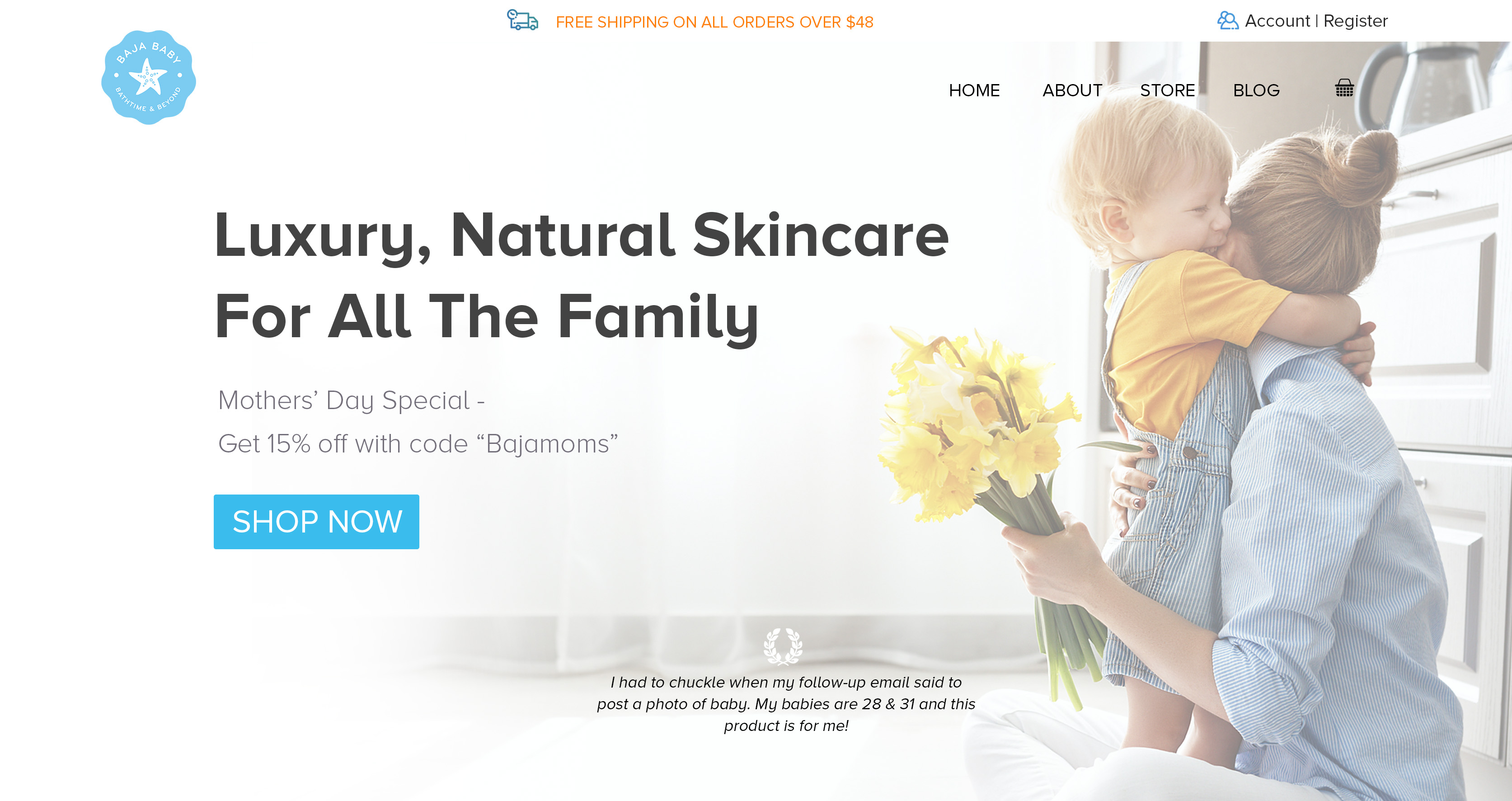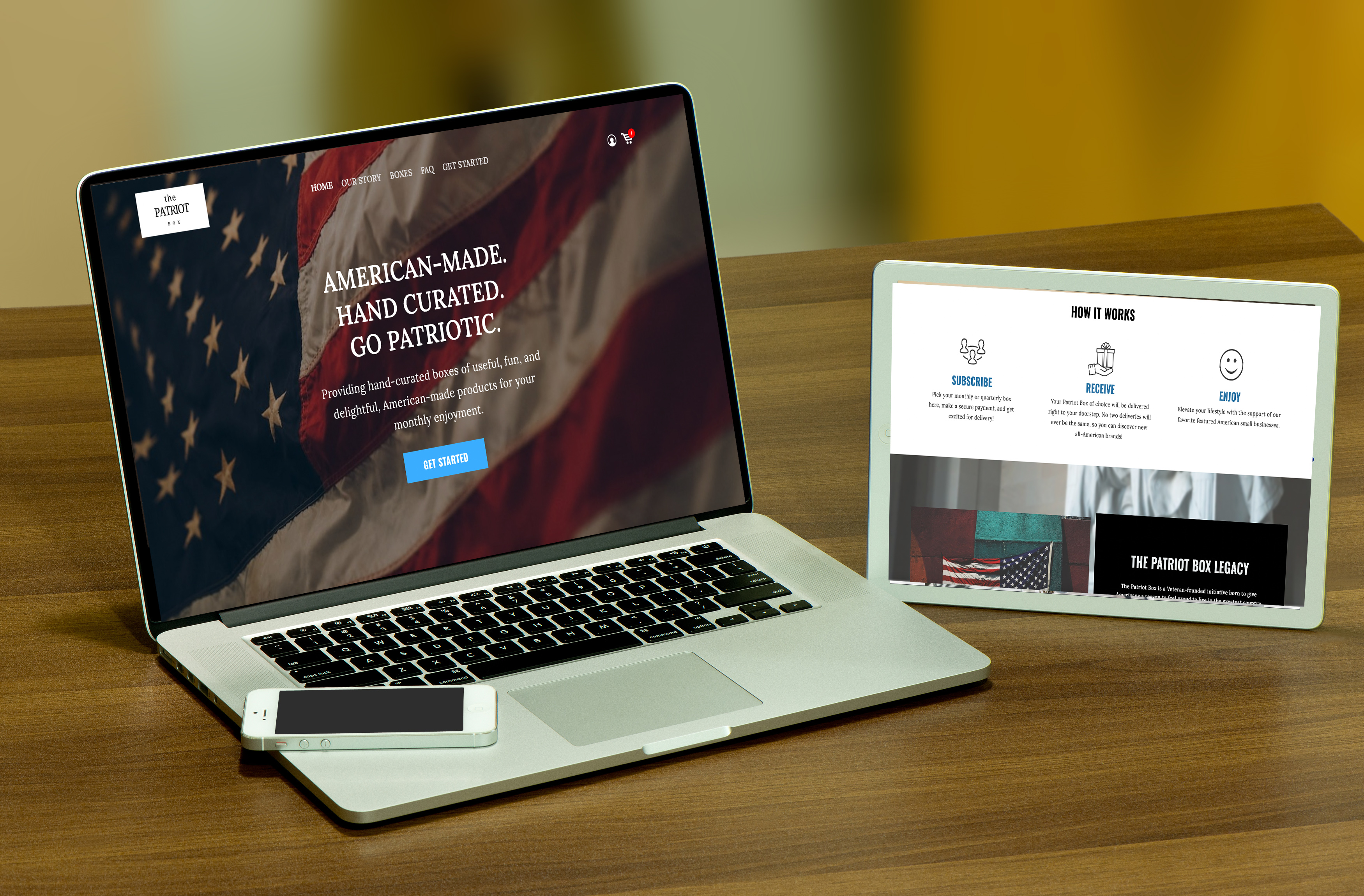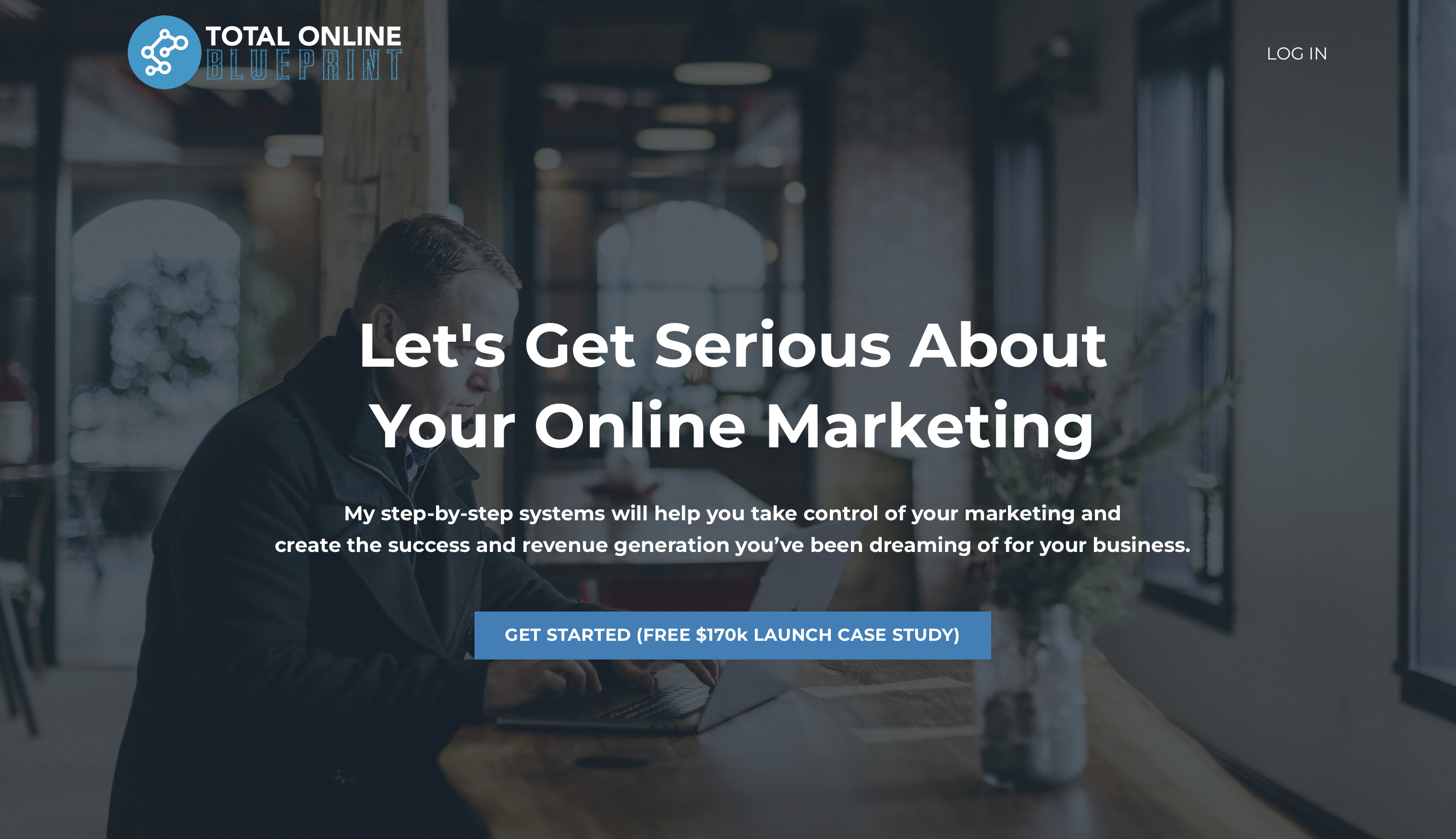E-Commerce Platforms I'm Ditching in 2023 (And What I'm Using Instead)
Nov 16, 2022
In the last 15 years I’ve used almost all of the big names in e-Commerce, from Wordpress, Shopify, Magento, Squarespace and a ton more. Most don’t cut even the basics of e-Commerce out of the box, but some of those big names are here to stay. You’ll see them advertised everywhere, in fact. So, how do you know which platform is for you, and which you should steer clear of?
In this entry into the Total Online Blueprint blog, I’ll cover some of the pros and cons for each platform, in my experience serving clients in tens of different industries and niches, and highlight a new kid on the block that I personally have started using for my own e-Comm brands, as well as becoming a consultant in the platform for clients globally.
1. WORDPRESS
I’ve used Wordpress for e-Commerce for over 15 YEARS, so this even comes as a surprise to me! As the platform has grown it has become so much more feature-rich than it ever was before (I was around in the good ol' days where you got a white page with Georgia font 😆), with the ability to completely customize your website for any whim or need you may have in e-Commerce, so all is good and well, right? Wrong.
With that level of flexibility, Wordpress has become a mess of plugins, customization needs, security issues and performance bottlenecks. None of those things make for a streamlined, optimized, or SEO'd website that should power your e-Commerce business, especially for the average entrepreneur/small business (let alone those who wish to scale rapidly).
PROS
Wordpress is a fantastic, flexible system (and hey, it is FREE at its’ core), and I love it in many (many) ways. Indeed, it’s still the platform of choice when I go to build a marketable website for a client running a service business or a non-e-commerce business and I don't see that changing any time soon; it's served our agency clients incredibly well over the last 15+ years. Depending on your needs (how complex, nuanced or demanding they may be) Wordpress is a superb solution to build a range of sites from marketing, landing pages, e-Commerce, membership platforms and more. If you can conceive it, you can build it in Wordpress.
One of the pros for Wordpress is also a con, as you'll see below. The incredibly well-supported community and marketplace of free and premium plugins is both an asset and a curse when it comes to building an e-Commerce website on WP. It adds endless opportunity. and yet...
CONS
...Complexity breeds instability and stability is ESSENTIAL for the success of an e-Commerce business.
The sheer volume (100,000’s at this stage) of plugins available for Wordpress (many of which may cause conflicts with other plugins, or the core Wordpress system) and you have the recipe for a bit of a mess.
Added to this, plugins often cause performance and security bottlenecks (which have become much more prevalent in recent years), and Wordpress can quickly become a burden rather than an asset, for your business, when your business relies on that site for generating revenue in an e-comm setting. Add in the complexity of E-Commerce and, while still a viable solution, it can create unnecessary clutter and headaches, particularly for the average entrepreneur or small business.

One final con that none of the other platforms mentioned here suffer from is that when you opt for Wordpress, PARTICULARLY in an e-commerce setting, you are going to have to pay close attention to the server you use. You will need a minimum of a VPS which will cost an average of $100p/m to ensure your site performs well with the added bloat that e-Commerce plugins create for a Wordpress website.
One caveat here is that, when done right, in a streamlined way, Wordpress can be developed into a great e-Commerce website. However, when it comes to a business owner or small team building or managing this (which is the angle this particular article assumes you're seeking to nail), without development knowledge and historical experience with the Wordpress platform, it becomes a big potential for disaster, for the average business.
2. SHOPIFY
Shopify has established itself as the “king” of e-Commerce platforms, and for good reason. It is an expansive, well-supported solution where you can really sell anything you desire, online. As a "Software as a service" (SaaS) platform, it does away with performance issues you may find on a more custom solution like Wordpress, as well as creating a controlled ecosystem without many of the risks of conflicts or security problems.
With the emergence of more and more businesses building third party extensions for Shopify, there is also superb flexibility in the building of a business website platform. We’ve used Shopify for approximately 5% of our client websites in my marketing agency, over the last 10 years and it is a viable solution, with some caveats I’ll outline below.

PROS
Software as a Service (SaaS) so it is streamlined and performance optimized out of the gate. Large theme and plugin repository meaning you can build almost any type of e-Commerce business in their ecosystem and quickly install themes and plugins to enhance functionality to your desired spec. Their system also affords users access to stock imagery/icons, which makes it very easy to customize the system to the look you are going for (e.g. no need for expensive stock images to be purchased, downloaded and added).
CONS
Shopify gets real expensive, REAL fast, and even before processing a single transaction. Every plugin you add will normally cost you EITHER a monthly fee or a profit-share commission. This means from day one you may be paying out $100’s a month in upfront fees (though many do offer free trials to get you started) just to get your system up and running. Basic e-commerce functions (e.g. subscription products, or funnel systems) come at a steep premium, when really they should be in-built to any e-commerce system by default.
The system is not particularly intuitive for the average business owner, so you likely will need a lot of help unless your e-Commerce business is very straightforward, or you really enjoy delving into technology (I LOVE this, which is why I do what I do, but I am well aware most people cannot stand it, nor have the patience for it).
In Shopify, the website builder is poor and unintuitive but you can plugin page builders (most often, once again, at a premium). The premium themes are expensive (often $200-300) and do not come with the in-built demo content you see (this makes it difficult to swap out content and make your new, expensive theme look anything like the demo you “bought” into, which is incredibly disappointing given the upfront investment - at least give us some demo content, man!).
3. WIX, SQUARESPACE et al.
I’m grouping these types of SaaS websites together because they operate in similar ways and all share similar pros/cons and features.
I should be clear at the outset, I do not recommend these platforms to any of my clients when marketing their businesses. We have done too many migrations for clients originally using these platforms, over the years, to know better than to start with a Wix or Squarespace website. Granted however, all of these platforms ARE improving and building out better ecosystems, so if your website need is basic (non-e-Commerce), in my opinion, they can serve you due to sheer ease of use and speed to launch. If you’re building out e-Commerce systems, you will ALWAYS find a better solution in the other platforms I mention here.
PROS
Simple setup processes. Clean themes. SaaS so the performance and stability should be good out of the gate for you. Inexpensive to get started (as opposed to Shopify). No transaction fees (as opposed to Shopify). Improving feature ecosystems across the board.
CONS
As with Shopify, these platforms are not particularly appropriate for specific types of e-Commerce, including e-learning, membership websites or subscription businesses, as much as they would try and lead you to believe. Offer a basic, limited solution for e-Commerce in almost all components and use cases. There is better available as SaaS (e.g. Shopify) with more control, and more flexibility at a low price point (e.g. Wordpress). Restrictive website builders that are not what I would call “marketable” aesthetically. No appropriate funnel systems are readily available.
SO WHAT IS THE SOLUTION I’D CHOOSE?
It’s important to be clear that no platform is “perfect”, and never will be – this is software and technology, after all. However, having used so many website platforms for over 15 years in consulting for clients in all sorts of industries, in all sorts of e-Commerce scenarios (selling products and services as diverse as photography, skincare, e-learning, membership websites, watches and more), I have come to have a reliably strong handle on what platform will work best for client x,y,z just from an overall perspective from the way the user flow on the platform works.
The king of e-Comm (Shopify) I have, in full transparency come to loathe due to its’ highly expensive integrations, difficult UI and lack of features in its’ core package - I don't believe that this platforms serves clients in the best ways, as a result; it certainly feels like their focus is on profit and not people and that is where I have come to have an issue with them.
On the other flip-side of the e-Commerce coin (pardon the pun), Wordpress has become more and more problematic as it requires a ton of plugins to build out e-Commerce platforms that work. Yes, it is phenomenally flexible, and free (at its’ core), but you run into stability, performance and security issues down the line.
Wix/Squarespace and other, similar platforms just don’t offer the flexibility of Wordpress, nor the expansive e-Commerce options of Shopify, so they are instant “no-go’s” in my opinion as both Wordpress and Shopify service e-Commerce better, depending on your objectives.
4. THE NEW KID ON THE BLOCK - SUBBLY
The solution I would recommend in almost all instances, offers a more complete integration for what we entrepreneurs really need, right out of the base package they provide – Simple, easy to use, marketable platform (e.g. automations and funnels), lack of complexity (e.g. no “plugin soup”), SaaS stability (superior security and performance) and a website builder that actually works great. The platform that I have found ticks all of these boxes, is called Subbly.
I first came across Subbly a couple of years ago for one of my own businesses, a wristwatch subscription club, when looking for a more streamlined solution than the existing Wordpress integration we had custom-built (at a cost of $10,000's in development), which was running into more and more issues. I wanted to try to avoid the expensive and corporate-feeling Shopify solution I had come to resent while working on client sites (I always felt bad for these clients, not only paying $700-1000 a month in plugin fees, but also then transaction fees and plugin commissions ON TOP!).

So, what started out as being a platform which we exclusively wanted to run our subscription products checkout and fulfillment process, very quickly became the platform that ran our business (including checkout sequence, customer automations, funnels, inventory and website). Indeed, the next subscription-first club ( www.thekeeperbox.com) I established, I ran a little experiment to see if we could "do it all" on Subbly, and was really, pleasantly surprised by the outcome, particularly from the front-end website once I got my teeth sunk into it and played around in real depth.
What I enjoyed just as much as the functionality of this platform, outside of the modern focus, right out of the gate, was the incredible customer support and community vibe I got from Subbly. What became clear pretty rapidly was that the team involved cared about their platform and the experience their users had… which you simply cannot say about Shopify, Wordpress, Squarespace and other platforms. It was more a personal support journey, is what I experienced which was both shocking and refreshing at the same time.
PROS
Streamlined, intuitive back-end system, great (drag and drop) website builder, automations and funnels built-in, SaaS (performance and security), lower price than Shopify and yet many more out-of-the-box features, functionality is high-level and provides pretty much everything an e-Commerce business could need, out of their base dashboard.
CONS
There are only a few cons (currently) to Subbly. One is that the transactional e-Commerce store you can build, is fairly bare bones if not at least very functional. The platform was originally designed to be “subscription-first” e-commerce focused, and it does this style of e-commerce better than ANY other platform. Transactional e-Commerce is something I am seeing them work on a lot to improve in their new phase of development, and I have no doubt they will nail this in due course too.
The second minor downside I see with the platform is that payment systems are fairly limited, albeit they do support Stripe (industry leader, we use this in all our e-Commerce businesses) and Paypal (via Braintree). The latter of these is almost impossible to have integrated because Braintree do not offer small/startup businesses accounts with them, which is frustrating. I am hoping these minor bottlenecks get progressed soon with further merchant options in future.

YOU CAN VIEW A FEW OF THE WEBSITES I RECENTLY DESIGNED ON SUBBLY, HERE
A final note is that emails are difficult to make beautiful due to the automations not being able to be edited and the email template system is relatively simplified.
However, as a singular system, Subbly has no equal in terms of usability, functionality and affordability for selling physical products online - they have, specific to subscription-first e-commerce, thought of just about everything and it's all within the platform. Relatively little else is needed outside of this aside from elements like tracking pixels, google analytics, text marketing etc. It is one of the most complete entrepreneur-focused e-Commerce systems, if not the most complete in marrying usability, front end features and back-end tools.
WHAT IF MY PRODUCT IS VIRTUAL?
I am hyper-aware that it is a mess to sell virtual products (memberships, coaching, masterminds, communities) on Wordpress - I've done it so many times over 15 years, and it is never optimal. Shopify, Squarespace, Wix et al, don't do it as far as I am aware, at least not in a seamless way where your system recognizes your membership or access level and directs you into funnels or different areas, accordingly.
It is my understanding that Subbly are looking at opportunities in this realm, which I think is a superb idea, but that may take time. So, if you are looking to establish an e-learning/coaching/mastermind/community and need to do it yesterday, there is really only one viable option in today's market; Kajabi.
5. KAJABI
Kajabi is a platform I started using way back in 2010 when I launched my first coaching business. It was pretty dated back then (weirdly, as it was a new system) but the functionality was solid. They have come an awfully long way, it must be said, and while the system isn't perfect, it is the best there is - out-performing others like Teachable (bland marketing front-end), Kartra (just way too complex), Thinkific ( somewhat limited) and so on, in one way or another for virtual products like coaching, courses and membership websites that monetize knowledge. Spoiler - you're reading this article on a Kajabi-built website 😊

PROS
A true, all-in-one solution to sell courses/coaching etc on a one-time or recurring basis. Website builder is decent (not fantastic) but it is the course delivery suite and marketing opportunities (e.g. funnels, conditional logic, content delivery such as evergreen content) that makes Kajabi a worthwhile option. SaaS platform, so everything you need to monetize your knowledge is in place, including podcast, blog, video, webinar, website. They have recently acquired Vibely, so the final piece of the membership puzzle (communities) is launching soon, which I am super-excited about.
CONS
The website builder is rigid and the themes are pretty bland, if not at least professional. It can be expensive for a new coach trying to monetize content. UI takes some getting used to as there are so many components from the automations, website, blog posts. Takes time to setup correctly.
IN CONCLUSION
It is my strong belief that every single business should be partaking in e-Commerce in one way or another, from online payments, subscription products, transactional e-Commerce, coaching, clubs, communities and more.
As such, and given my experience with all of the platforms outlined above, I have a recommended platform for each physical, and digital products. For physical products (especially those you can sell on a subscription basis), Subbly is the only solution I would recommend, especially if you are a solopreneur, small team.
The other systems I have detailed are all superb systems, whether we're talking about the unending flexibility of Wordpress, or the e-Commerce behemoth of Shopify. However, each have huge flaws that means that most of my clients should not be using them for their e-Commerce needs.
I hope this has been of help! What is your experience with e-Commerce platforms? Start the discussion below!
If you'd like to see a side-by-side case study between Shopify and Subbly, you can watch the video here 🙂
Or, join my Subbly Masterclass course and discover all I've learned in the last 3 years working with Subbly.

